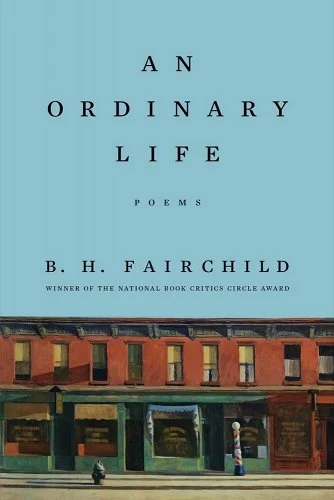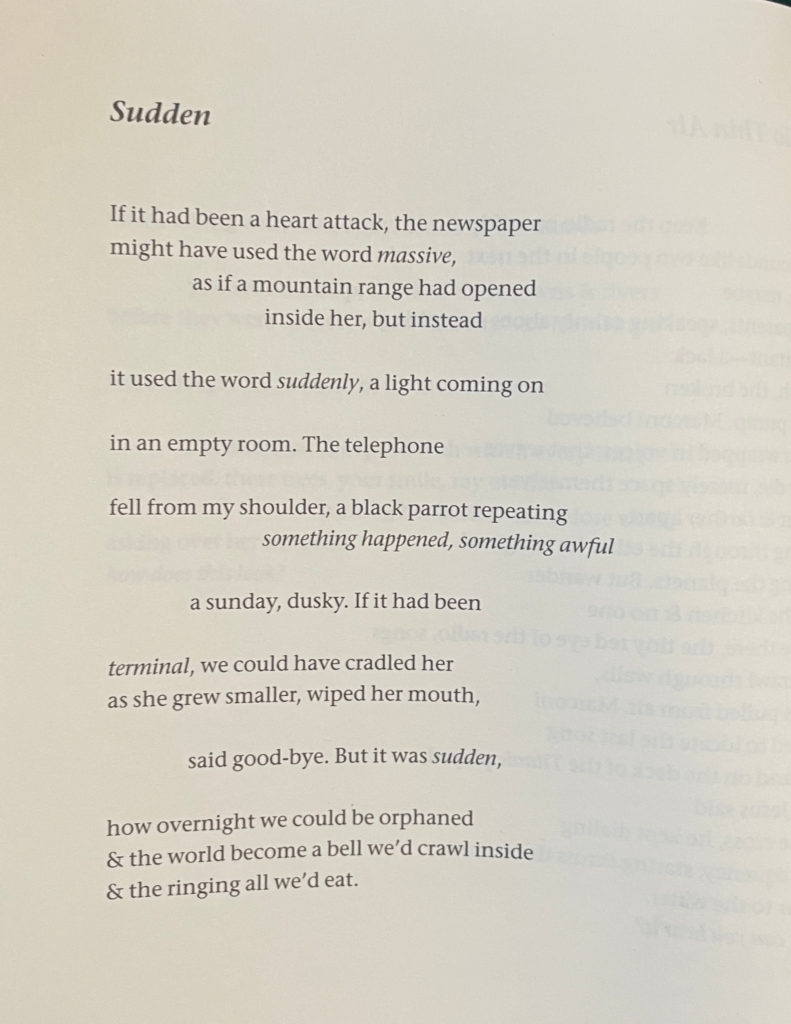This poem is from Fairchild’s new book, An Ordinary Life, which just came out. It’s full of wonderful poetry.
Often the Dying Ask for a Map
So when Locie, embraced by the great softness
of bed #12, her late blizzard of silver hair
fanning out beneath head and shoulders, asked
for one in plaintive, almost desperate tones,
I went out to my car and brought back my old,
frayed road map of Kansas, and she followed
the unfolding as if it in itself were a miracle,
and then held it over her head, scanning
the red interstates and blue country roads
without apparent method or intent but
smiling her morphined grand smile of awe
and wonder within an air of childhood
surprise and overwhelming acceptance.
Because here it was—the way there, or here,
or out or over or in, and here, sweetie,
let me hold it for you, let me hold…and
her trembling index finger knows no certain
path but wanders through the Flint Hills toward
Cottonwood Falls, then darts up toward
Osawatomie, and she can smell the new wheat,
its dark green deep as the jade of the necklace
her husband brought home from the war
in the Pacific. And now as she crosses
the Kaw River, she sees a young woman
standing beneath the moon in a wheatfield
in Kansas and wondering, what will I be?
Who will I marry? Where will we live?
Will I have children? And if, at the end,
I am lost, how will I find my way home?
B.H. Fairchild
